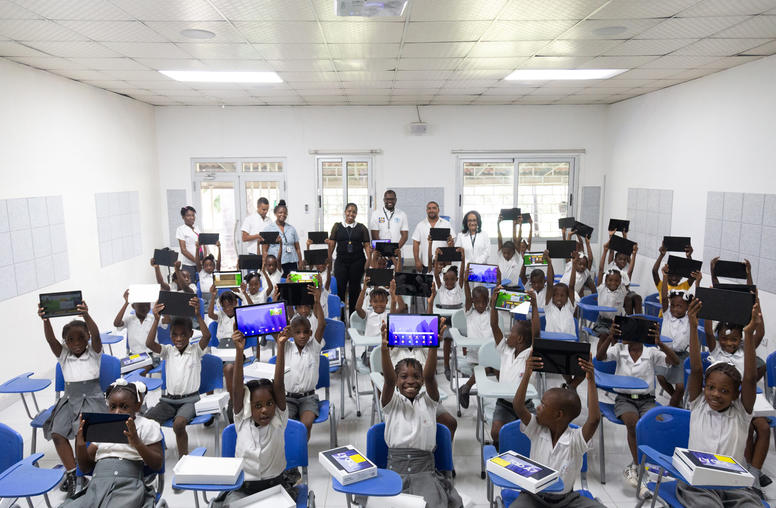Justice for Haiti
The Haitian court’s decision not to prosecute Jean-Claude “Baby Doc” Duvalier for human rights violations and crimes against humanity has refocused international attention on the problem of justice in Haiti. At every level, courts are dysfunctional and corruption endemic. Street crime, drug trafficking, rape and gang violence persist despite Haiti’s overcrowded prisons. Impunity remains a major obstacle to Haiti’s recovery. On February 15, 2012, USIP hosted a public event to discuss justice in Haiti and the path forward for judicial reform.
.jpg) The Haitian court’s decision not to prosecute Jean-Claude “Baby Doc” Duvalier for human rights violations and crimes against humanity has refocused international attention on the problem of justice in Haiti. At every level, courts are dysfunctional and corruption endemic. Street crime, drug trafficking, rape and gang violence persist despite Haiti’s overcrowded prisons. Impunity remains a major obstacle to Haiti’s recovery.
The Haitian court’s decision not to prosecute Jean-Claude “Baby Doc” Duvalier for human rights violations and crimes against humanity has refocused international attention on the problem of justice in Haiti. At every level, courts are dysfunctional and corruption endemic. Street crime, drug trafficking, rape and gang violence persist despite Haiti’s overcrowded prisons. Impunity remains a major obstacle to Haiti’s recovery.
On February 15, 2012, USIP hosted a public event to discuss justice in Haiti and the path forward for judicial reform. The panel of distinguished experts included:
Speakers
- Ugo Solinas
Senior Political Affairs Officer, Department of Peacekeeping Operations, United Nations - Joel Danies
Deputy Coordinator for Political Affairs & Office Director, Office of the Haiti Special Coordinator, U.S. Department of State - Mark Schneider
Vice President, International Crisis Group - Vivienne O’Connor
Senior Program Officer, Rule of Law Center, U.S. Institute of Peace - Robert Maguire
Director, Latin America and Hemispheric Studies Program, George Washington University - Robert Perito
Director, Haiti Program, U.S. Institute of Peace
Explore Further
- Read the related USIP Peace Brief
- USIP's Model Codes for Post-Conflict Justice
- Countries and Regions: Haiti
Related Academy Courses
- Rule of Law Practitioners Course
- Stabilization and Peacebuilding: Understanding Dynamic Processes and Making Them Work
- Supporting Police Reform: Capacity Building for Advisers and Trainers


